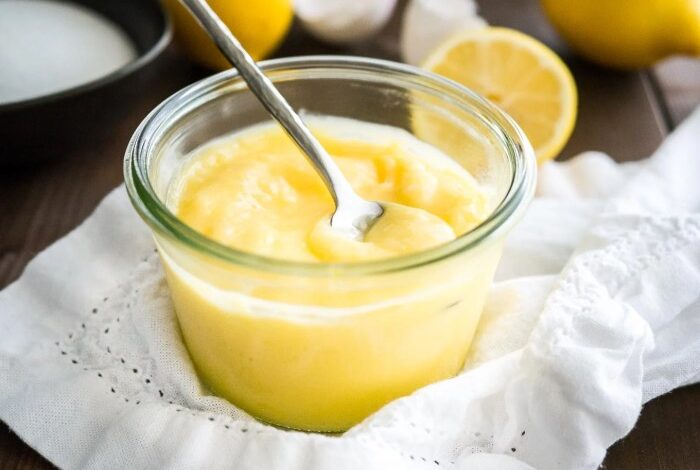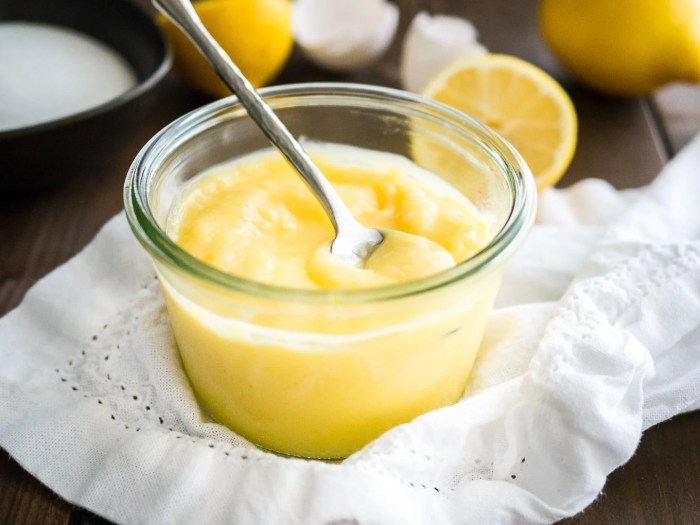
What to Do with Lemons: From Kitchen to Home
What to do with lemons? This question, seemingly simple, opens a door to a world of possibilities. From zesty culinary delights to refreshing wellness solutions, lemons offer a surprising range of applications that extend far beyond the kitchen. Whether you’re a seasoned chef or a curious beginner, this exploration will unveil the versatile nature of this citrus fruit, inspiring you to embrace its myriad uses in everyday life.
Beyond their tart and tangy flavor, lemons possess a remarkable versatility. Their juice, zest, and even their peels hold secrets to enhancing dishes, promoting health, and creating a refreshing ambiance in your home. We’ll delve into the world of lemon-infused recipes, uncover their natural cleaning and therapeutic properties, and even explore their fascinating role in art, literature, and popular culture.
Prepare to be surprised by the endless possibilities that lemons offer.
Home and Garden
Lemons are a versatile fruit with a wide range of uses beyond simply adding flavor to your food. Their acidic properties and refreshing scent make them a valuable asset in the home and garden. From natural cleaning solutions to pest control, lemons can help you create a healthier and more pleasant environment.
Cleaning with Lemons
Lemons are a natural and effective cleaning agent due to their citric acid content. They can be used to clean various surfaces in your home, leaving behind a fresh scent.
- Countertops and Sinks:Cut a lemon in half and rub it directly on your countertops and sinks to remove stains and grime. You can also create a lemon cleaning solution by mixing lemon juice with water and baking soda.
- Cutting Boards:Lemon juice can effectively disinfect cutting boards and remove lingering odors. Simply rub the juice onto the board, let it sit for a few minutes, and then rinse thoroughly.
- Microwave:To deodorize and clean your microwave, place a bowl of water with lemon slices in it and microwave for a few minutes. The steam will loosen up any food residue, making it easier to wipe clean.
Using Lemons as a Natural Insect Repellent
Lemons contain a compound called limonene, which acts as a natural insect repellent. The strong citrus scent can deter various pests, including ants, flies, and mosquitoes.
- Outdoor Spaces:Place lemon peels around your patio or garden to keep insects at bay.
- Windowsills:Rub lemon peels along your windowsills to create a barrier against flies and other insects.
- Homemade Repellent:Combine lemon juice, water, and a few drops of essential oils like peppermint or lavender in a spray bottle. Spray the mixture around your home or garden to repel insects.
Creating a Refreshing Atmosphere
Lemons have a fresh, invigorating scent that can create a welcoming and calming atmosphere in your home.
- Diffusers:Add lemon essential oil to your diffuser to fill your home with a refreshing citrus aroma.
- Potpourri:Combine dried lemon peels with other fragrant herbs and spices to create a homemade potpourri.
- Candles:Lemon-scented candles can create a relaxing and inviting atmosphere in any room.
Lemon-Based Beauty and Skincare Products
Lemons are rich in vitamin C and antioxidants, making them beneficial for skin health.
- Facial Toner:Lemon juice can be used as a natural facial toner to brighten the skin and reduce blemishes. Mix lemon juice with water and apply it to your face with a cotton ball.
- Body Scrub:Combine lemon juice with sugar or salt to create a homemade body scrub that exfoliates and brightens the skin.
- Hair Rinse:Lemon juice can help to clarify and brighten your hair. Dilute lemon juice with water and use it as a final rinse after shampooing.
Composting and Enriching Garden Soil
Lemon peels and seeds are rich in nutrients and can be added to your compost bin to enrich your garden soil.
- Compost:Chop up lemon peels and seeds and add them to your compost bin. The citric acid in the peels helps to break down other organic materials, speeding up the composting process.
- Direct Application:You can also bury lemon peels directly in your garden soil to add nutrients and improve soil drainage.
Miscellaneous Uses: What To Do With Lemons

Beyond the kitchen and home, lemons have a surprising array of uses, demonstrating their versatility and cultural significance. From ancient remedies to modern innovations, lemons have played a vital role in various aspects of human life.
Lemon’s Historical and Cultural Significance
Lemons have a rich history, with evidence suggesting their cultivation dates back to ancient times in Southeast Asia. Their journey across continents has left an indelible mark on different cultures, influencing traditions, cuisine, and even folklore.
- In ancient Rome, lemons were used for medicinal purposes and were considered a symbol of wealth and prosperity.
- In the Middle Ages, lemons were introduced to Europe by Arab traders, where they were valued for their ability to prevent scurvy, a disease that plagued sailors during long voyages.
- In the 18th century, lemons became a popular ingredient in European cuisine, and their use spread throughout the world.
- In many cultures, lemons are associated with purity, cleansing, and good luck. For example, in India, lemons are used in religious ceremonies and are believed to ward off evil spirits.
Lemon-Themed Crafts and DIY Projects, What to do with lemons
Lemons are not just for eating and drinking; they can also be used to create unique and beautiful crafts. The bright yellow color and fragrant aroma of lemons make them an ideal material for a variety of DIY projects.
- Lemon Candles: Dried lemon peels can be used to make fragrant candles. Simply melt wax, add dried lemon peels, and pour the mixture into candle molds. The lemon scent will fill the room with a refreshing aroma.
- Lemon Soap: Lemons are a natural source of citric acid, which is known for its cleansing properties. You can make your own lemon soap by combining grated lemon zest, olive oil, and lye. The soap will have a refreshing scent and will leave your skin feeling clean and soft.
- Lemon Bath Bombs: Combine dried lemon peels, baking soda, citric acid, and essential oils to create fizzy bath bombs. The lemon scent will create a relaxing and invigorating bath experience.
Lemons in Art, Literature, and Popular Culture
Lemons have inspired artists, writers, and musicians for centuries. Their vibrant color, refreshing aroma, and symbolic meanings have made them a popular subject in art, literature, and popular culture.
- Art: Lemons have been featured in still life paintings by artists such as Paul Cézanne and Vincent van Gogh. The fruit’s bright yellow color and contrasting textures provided artists with an opportunity to explore light, shadow, and form.
- Literature: Lemons have appeared in novels, poems, and short stories, often symbolizing purity, freshness, or a sense of hope. For example, in Ernest Hemingway’s “The Sun Also Rises,” lemons are used as a metaphor for the characters’ lost innocence and disillusionment.
- Music: Lemons have inspired songwriters and musicians. The fruit’s bright yellow color and refreshing aroma have been used to create imagery and evoke emotions in music. For example, the song “Lemon Tree” by Fool’s Garden is a popular song about unrequited love.
Books, Movies, and Songs Featuring Lemons
Lemons have played a prominent role in various works of fiction, film, and music. These works often explore themes of love, loss, hope, and the complexities of human relationships.
- Books: “The Lemon Tree” by Sandy Tolan is a novel about the resilience of Palestinian women in the face of adversity. “The Lemon Orchard” by Melanie Rae Thon is a novel about a family’s secrets and the power of forgiveness.
- Movies: “The Lemon Drop Kid” is a 1951 comedy film about a con artist who tries to make a quick buck by selling fake lemons. “The Lemon Sisters” is a 2019 film about two sisters who are forced to work together to save their family’s lemon orchard.
- Songs: “Lemon Tree” by Fool’s Garden is a popular song about unrequited love. “Lemon” by N.E.R.D. is a song about a relationship that is souring. “Lemon Song” by Led Zeppelin is a blues-rock song that features a prominent lemon motif.
Lemons are so versatile! You can use them in everything from lemonade to cleaning products. But did you know they can also be a part of a fun frugal family Christmas tradition? Check out this awesome tutorial for creating a nativity scene with natural materials, including lemons! fun frugal family Christmas tradition 2 nativity with a tutorial It’s a great way to get the kids involved in the holiday spirit and teach them about the true meaning of Christmas.
And when you’re done, you can use the lemons to make a delicious batch of homemade lemonade!
Lemons are such a versatile fruit! You can use them to make everything from refreshing lemonade to zesty sauces. But if you’re looking for something a little more glamorous, consider incorporating them into your holiday party look. A touch of lemon zest can add a subtle citrusy scent to your perfume, or you could even create a DIY lemon-infused body scrub to leave your skin feeling soft and radiant before you slip into the holiday party dress.
No matter how you choose to use them, lemons are sure to add a touch of sparkle to your holiday celebrations.
Lemons are so versatile! You can use them in everything from lemonade to cleaning products. But sometimes, you have a surplus of lemons and you’re not sure what to do with them. That’s where a little holiday cheer comes in.
If you’re looking for some creative gift ideas for your neighbors, check out this great list of 30 neighbor Christmas gift ideas – you might even find a way to incorporate those lemons! After all, who wouldn’t love a homemade lemon-infused gift?



